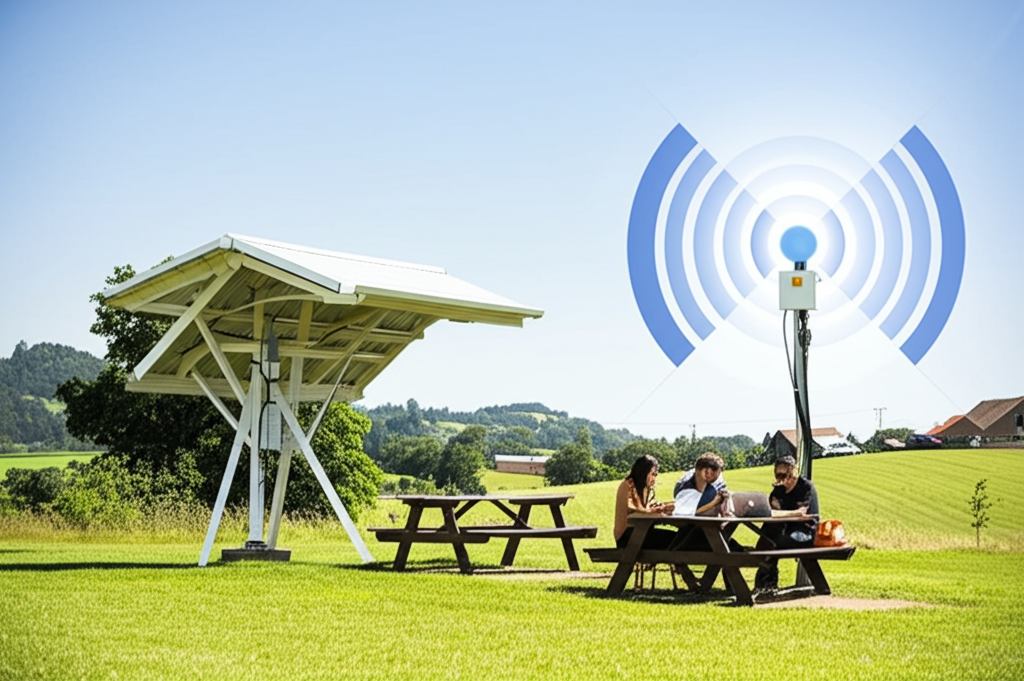
Community Spotlight: How ThePublic Transformed Connectivity in Rural Areas
# Community Spotlight: How ThePublic Transformed Connectivity in Rural Areas
The digital divide between urban and rural communities has been a persistent challenge in the internet age. While city dwellers enjoy high-speed connections and competitive pricing, rural residents often face limited options, high costs, and poor service. ThePublic's decentralized WiFi network is changing this reality for communities across the country. Here are some of their stories.
Pine Ridge Reservation, South Dakota
The Pine Ridge Reservation spans over 2.8 million acres and is home to nearly 20,000 residents. Before ThePublic, only 67% of the reservation had any internet access, and speeds were often too slow for video calls or online education.
The Transformation
In partnership with the Oglala Sioux Tribe, ThePublic launched a pilot program with 50 initial nodes. Community members were trained to install and maintain the equipment, creating both connectivity and employment opportunities.
"Before ThePublic came to Pine Ridge, I had to drive 45 minutes to the library just to attend my online classes. Now I can study from home, and my whole family has internet access for the first time." — Chayton Black Elk, Nursing Student
Within six months, coverage expanded to 85% of the reservation, with average speeds increasing from 3 Mbps to 25 Mbps. The local school reported a 40% increase in homework completion rates, and several new online businesses were launched by community members.
Appalachian Kentucky
The mountainous terrain of Eastern Kentucky presents significant challenges for traditional internet infrastructure. In McCreary County, one of the poorest counties in the United States, nearly 30% of residents had no internet access at home.
The Transformation
A grassroots initiative led by local teachers and business owners brought ThePublic to McCreary County. Starting with just 20 nodes in the county seat of Whitley City, the network quickly expanded through community participation.
The key to success was the "Neighbor-to-Neighbor" program, where each new node operator would help install nodes for two additional households, creating a rapidly expanding mesh network.
"We've seen a renaissance of local business since ThePublic came to town. Our craft cooperative now sells online, and several remote workers have moved to the area, bringing new energy and resources to our community." — Sarah Jenkins, Chamber of Commerce President
Today, 78% of McCreary County residents have access to ThePublic's network, and the county has seen a 15% increase in home-based businesses.
Migrant Worker Communities in California's Central Valley
Seasonal agricultural workers in California's Central Valley often lack stable internet access, making it difficult to stay connected with family, access services, or participate in their children's education.
The Transformation
ThePublic partnered with a coalition of farmworker advocacy organizations to create a mobile node system that could follow seasonal work patterns. Nodes were installed in community centers, churches, and worker housing facilities.
"Now I can video call my family in Mexico every night. My children can do their homework, and I can take English classes online. It has changed everything for us." — Miguel Hernandez, Agricultural Worker
The program has reached over 15,000 migrant workers and their families, providing not just connectivity but also digital literacy training and access to telehealth services.
Lessons Learned
These success stories highlight several key factors in bridging the rural digital divide:
- **Community Ownership**: When local residents become node operators, they have a stake in the network's success. 2. **Appropriate Technology**: ThePublic's low-power nodes can run on solar power where electricity is unreliable. 3. **Skills Development**: Training programs ensure communities can maintain and expand their own networks. 4. **Economic Opportunities**: Beyond connectivity, the network creates jobs and enables entrepreneurship.
Join the Movement
These communities demonstrate the transformative power of decentralized internet infrastructure. If your community is struggling with connectivity, ThePublic offers resources to help you get started:
- Community Starter Kits with subsidized hardware
- Training programs for local coordinators
- Grant opportunities for underserved areas
- Technical support and network planning assistance
Together, we can ensure that geography is no longer a barrier to full participation in the digital world.

Written by Elena Rodriguez
Published on June 12, 2023
Continue Reading
Introducing ThePublic: A New Era of Decentralized WiFi
How Node Operators Earn Rewards on ThePublic Network